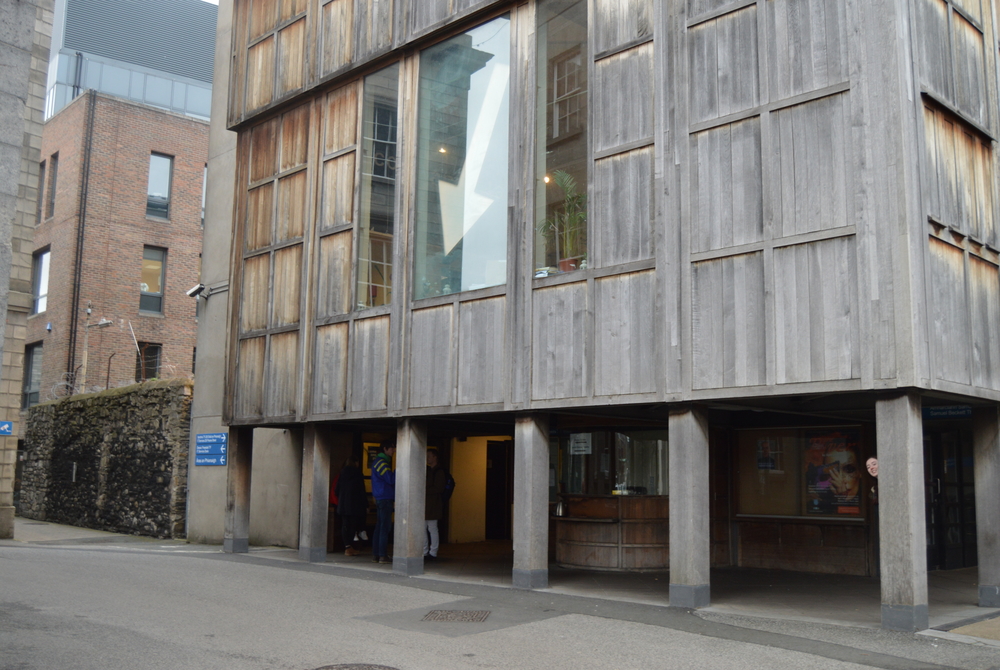Since Taoiseach Leo Varadkar announced the closure of schools and universities on March 12 and Trinity suspended classes, students and staff across a variety of disciplines have been forced to adapt to unprecedented conditions in an increasingly uncertain society. Students were advised to return home, all major public events were cancelled or postponed, and classes were moved online for the remainder of the semester. Though the change to online education presented challenges for students and lecturers across many courses, Trinity’s Department of Drama and Theatre Studies faced the additional challenge of trying to replicate the social interaction that drama and theatre is inherently dependent upon.
For many students, the department’s holistic approach to drama was what drew them to Trinity in the first place. The Drama and Theatre Studies course consists of a combination of lectures, seminars, and workshops, covering topics ranging from Beckett Studies and Irish Theatre to Set, Costume and Lighting Design. “The first two years are academically-focused, ensuring that each student has a basic understanding of theory and history before specialising in Sophister years,” explained Ceola Daly, a second year TSM Drama and English student. “Because of this I have gained so many interests that I would not have been exposed to prior and for that I am incredibly thankful.”
A crucial part of Drama and Theatre Studies for students of all years are the live performances, which were critically impacted by the closing of college. Due to the necessity of social distancing, some of the earlier performances required audience members to be seated a few seats apart, while several of the later shows were not able to be carried out at all. In these cases, students were asked to complete reflective journals, but the cancellation of shows was still “a great pity,” as Dr. Melissa Sihra, Trinity’s Head of Drama, reflected.
“In a pandemic such as this, the reliance on physical closeness becomes its most vulnerable aspect.”
However, as drama itself is dependent on social interactions, the department has made a strong effort to replicate in-person contact as much as possible. Dr. Sihra highlighted the importance of social interactions in classes and, consequently, the difficulties that have come with society being forced to shift to a state of quarantine and near-isolation. “Drama, theatre and performance, as an art form, is all about human interaction – physical and emotional,” she said. “Part of that liveness of the course is its vulnerability, which also has a great beauty to it. But in a pandemic such as this, the reliance on physical closeness becomes its most vulnerable aspect.”
Indeed, the department had to work quickly to adapt to the regulations of quarantine while seeking to maintain as much normality as possible. Like many other courses, lectures were easier to move online, but the process wasn’t entirely seamless. Dr. Sihra was among those who used a video software (Panopto) to record her lectures from her home, but still felt that teaching without students was very one-dimensional. “For me, lecturing is a process of mutual interaction, much like theatre itself, where performers depend upon the interaction with the audience for it to come alive and have meaning,” she said. “My students and I are on a journey of discovery together, so doing it alone felt strange and alienating.”
“We have been focusing more on our own movement, with lecturers sending us recordings of themselves warming up for us to follow, and doing yoga and character work over Zoom.”
For the workshops dependent on physical interaction, lecturers and students have been finding innovative ways to continue the modules as much as possible. “We have been focusing more on our own movement, with lecturers sending us recordings of themselves warming up for us to follow, and doing yoga and character work over Zoom,” said Saul Sherrard, a first year Single Honors Drama and Theatre Studies student. The process allowed students to continue on the intended track for their modules, yet Saul admitted that it was “very bizarre to study drama without interacting with the people I have grown so close to and love making theatre with”.
Final assessments provided another unique challenge for the department, as those for many modules, such as Performance Technology, were expected to be partially based on live performances. In this case, students were asked to create a video or perform live over Zoom, while other modules had students prepare a reflective essay instead. The shift in requirements has at times proven challenging or worrisome to students. “The assignments given to us to replace practical assessments are not necessarily an accurate representation of each of our abilities within a certain module,” said Roisin Daly, a first year English and Drama student. “Yet I don’t believe the department can do much about this during this time of crisis.”
The Drama and Theatre Studies department at Trinity has not been alone in facing these difficulties, however. According to Dr. Sihra, the coronavirus has had a “devastating” effect on professional theatre as well. Across the country and the world, live public performances have been cancelled and many theatre companies are facing financial uncertainty or have been forced to close. “The key issue for theatre as an art form, beloved by so many, is that at its core is human interaction and physical proximity,” Dr. Sihra said. “However, the theatre industry will emerge again, once the virus is under control and a vaccine has been found. That is the beauty of theatre; that it exists in real time and place.”






